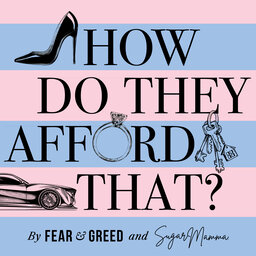Buying property with a guarantor
One way to get into the property market is to use a guarantor - usually a parent who owns their own home. But it's certainly not for everyone, and it's not without risk. Canna Campbell - a financial planner for almost 20 years - and Fear & Greed's Michael Thompson are joined by mortgage broker Adam McCabe from Blue Lantern Financial Services for a guide to guarantors.
The information in this podcast is general in nature and does not take into account your personal circumstances, financial needs or objectives. Before acting on any information, you should consider the appropriateness of it and the relevant product having regard to your objectives, financial situation and needs. In particular, you should seek independent financial advice and read the relevant Product Disclosure Statement or other offer document prior to acquiring any financial product.
Canna Campbell is a Corporate Authorised Representative and Corporate Credit Representative of Wealthstream Financial Group Pty Ltd ABN 35 152 803 113 Australian Financial Services Licensee AFSL 412079.
 How Do They Afford That?
How Do They Afford That?


